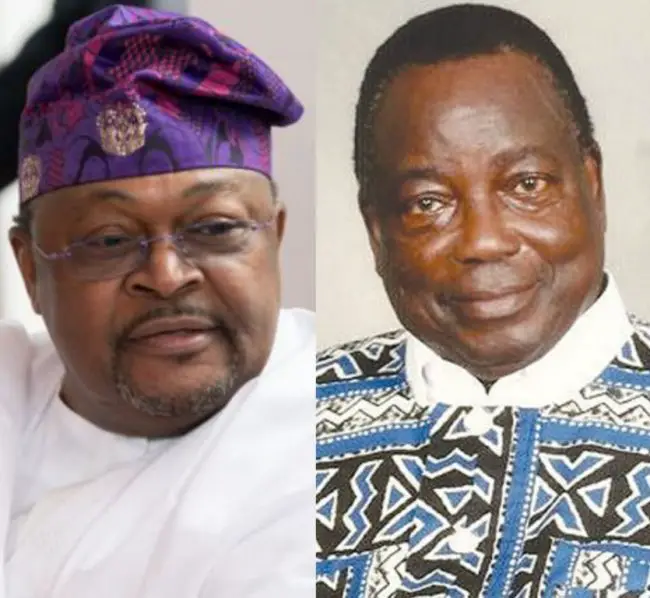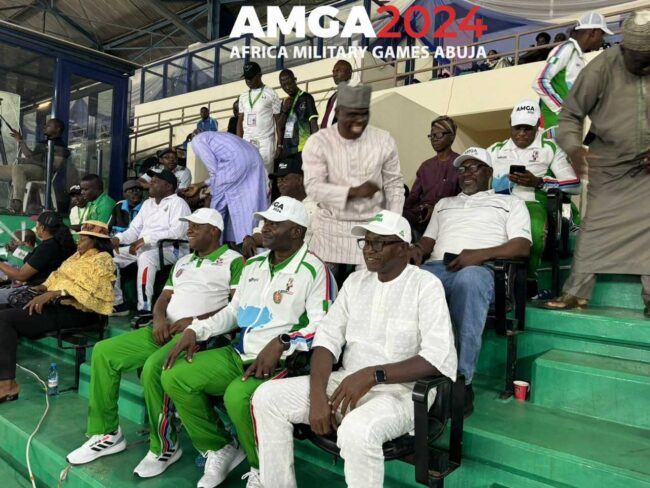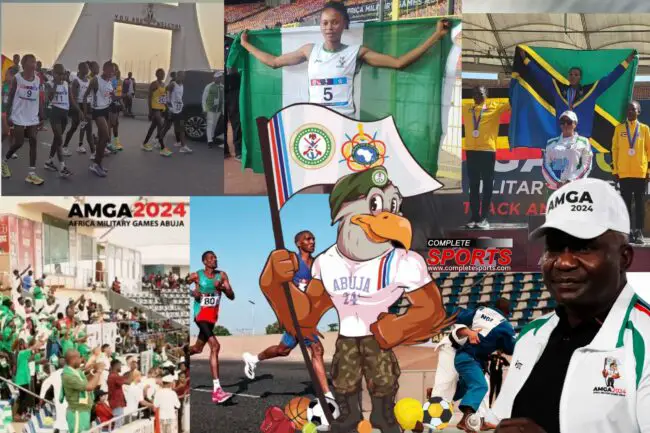I admit that I have not read the entirety of the draft of the proposed new National Sports Industry Policy.
I admit also that it is not always easy for me these days to read technical documents, not to talk of voluminous ones, when it is online. I am an ‘analogue’ man. Beyond that I am more comfortable with the feel of the hard copy of a book in my hands whilst slowly digesting its contents.
This new sports policy document is very important. It is the compass into the future of Nigerian sports, so it is one that I must read. In the past few days I have tried to do so. It has been a struggle both physically and mentally. After two days, I got to page 30-something. I am struggling.
The words of the People’s Lawyer, late Fela Anikulapo’s bosom friend, the fiery late Ishola Kanmi-Osobu comes to mind – ‘where there are too many arrows, the road is narrow’. In short, where many words are needed to describe a simple activity something is not right. I have not gone far and fatigue has set in. All my mental sensors are now up.
What I have read so far is a rehash of the history of Nigerian sports. For someone who has been part of that history in the past three decades trying to find solution to the decline in sports development in the country it is understandable that I labored with reading so many pages of the ‘brief’ history of Nigerian sports again.
The history I would have wanted to read in a few sentences would be one relevant to how we arrived at this plateau in Nigeria’s sports development that requires a change.
Let me digress a little here and explain my point.
The structures and policies enshrined in the National Sports Policy document in the early 1970s drove and successfully shaped sports development until 1993. They were very simple and very clear and practical.
The Sports Ministry provided the national sports policy and overall supervision. Sports development at grassroots was handled by State Sports Councils and anchored to parents and schools in the States. Elite sport was handled by the National Sports Commission, and the sports federations. The National Institute for Sports provided the training for the personnel, research and science support. The Nigeria Olympic Committee was independent, registering and leading Nigerian athletes to major international events. Governments provided most of the funds, supported at elite sports levels by grants and sponsorships of some of the sports events and programmes.
Also Read: 10 Longest Standing Nigerian Records In Athletics
Unfortunately, when Amos Adamu, came straight in 1992/1993 from a university classroom to steer the ship of Nigerian sport, it coincided with a turbulent period when there was a change of guard in government and the sports visionaries were removed without passing on their ‘rags’ of experiences that could never be bought in the marketplace or even taught in a classroom.
With all good intentions, and with abundance of power at his discretion, Adamu invented his own new sports world. With unwritten policies, a shrouded vision, and changing governments that knew little about the foundations, did not take sports seriously and were ignorant of the original vision of Nigerian sports, the ship of national sports started to drift into the wilderness of uncharted territories.
That’s where and when Nigeria’s sports development started to grind to a halt. The old and tested ‘plane’ has not been able to take off again since then. It is still on the tarmac, almost 3 decades later, revving up, with policies, structures, personnel, and even institutions that have steadily and slowly been degrading to a point, now, of no return. The anchor of sports to education through schools has long been abandoned. National facilities have all become carcasses.

No previous Minister, despite best efforts, has been able to put the train of development back on track in almost 30 years. Many tried but failed. Something new is needed.
That’s where we are now. That is the situation Mr. Sunday Dare inherited and has taken on amongst items that require Change! That’s why the idea of a new Sports Policy is welcome cannot be disregarded or dismissed. The times have changed. Policies may need to change to reflect the present times.
Sports have become a big global business. Private sector money drives sports in several other climes. Somehow, Nigerian sports must tap into that industry to benefit and grow its sports.
That is what the 171-page technical document, titled National Sports Industry Policy, uploaded online for Nigerians to read and make an input, is very important to all those involved in sports. That’s why I needed to read and digest the contents of the report to make my own input.
Unfortunately, I have not succeeded to read through the document in two days of trying. I recall two different experiences I went through on how not to write a report if the intention is quick, full attention and positive reactions.
I had the rare privilege to work full time, but briefly (for almost a year), in Globacom with the Guru. What an experience that was.
No matter how important the subject matter may be, if it cannot be condensed and compressed into a maximum of one and half pages, written simply and clearly with all the critical items, he would not even start reading it. It must be captured in no longer than one and a half pages.
It makes sense. Big men, political leaders, decision makers, hardly ever have the luxury of the time to read voluminous literature. Worse if it is sports. Their attention and interest must be captured in a few words, clear, simply put and enough to take a decision.
Another lesson is my being a member of the Samuel Ogbemudia Committee set up by the federal government to find solutions to the problems of Sports development in Nigeria. It took several months of painstaking work, visitations across the country, meetings with all relevant and irrelevant stakeholders from the public and private sectors, and consultations with ‘experts’ invited from across the spectrum of the sports industry. We collected and collated memoranda from many sectorial groups and contributions flooded in torrents. Nigerians knew Samuel Ogbemudia and his records in sports, and trusted him to come up with the answers if anyone could.
After many months of work, the reports were ready. They were in 5 voluminous printed books.
I can wager that nobody in the world outside of those of us that prepared the document has read the books.
We needed trucks to carry them to the Presidential villa in Abuja on the day we submitted the ‘mother of all reports’ at a lavish reception with full representation of the federal government, led by the President himself.
More than a decade after, not a line of that report has been implemented.
I have been part of many previous reports on Nigerian sports in the past. Experience and old knowledge are not cheap and must never be discarded. You don’t buy either in the market place.
I am not saying that the new National Sports Industry Policy should be reduced to one and half pages. But after 30 pages of 171 pages of literature I was fatigued and had not captured the meat of such an important document.
To buttress my feeling, I asked two key persons involved in the scripting of the new industry policy if the document replaces the old National Sports policy, or if it is a separate document that will exist side by side with a new national sports policy.
They gave me two different answers. That spoke volumes.
For now, in this new age of technology, such a report on sports, should be simple, uncomplicated, clear, and no more than a coffee table literature, something even the minister or anyone for that matter, can pick up, read in 5 minutes, digest and take a decision one way or the other.
Got what it Takes?
Predict and Win Millions Now












